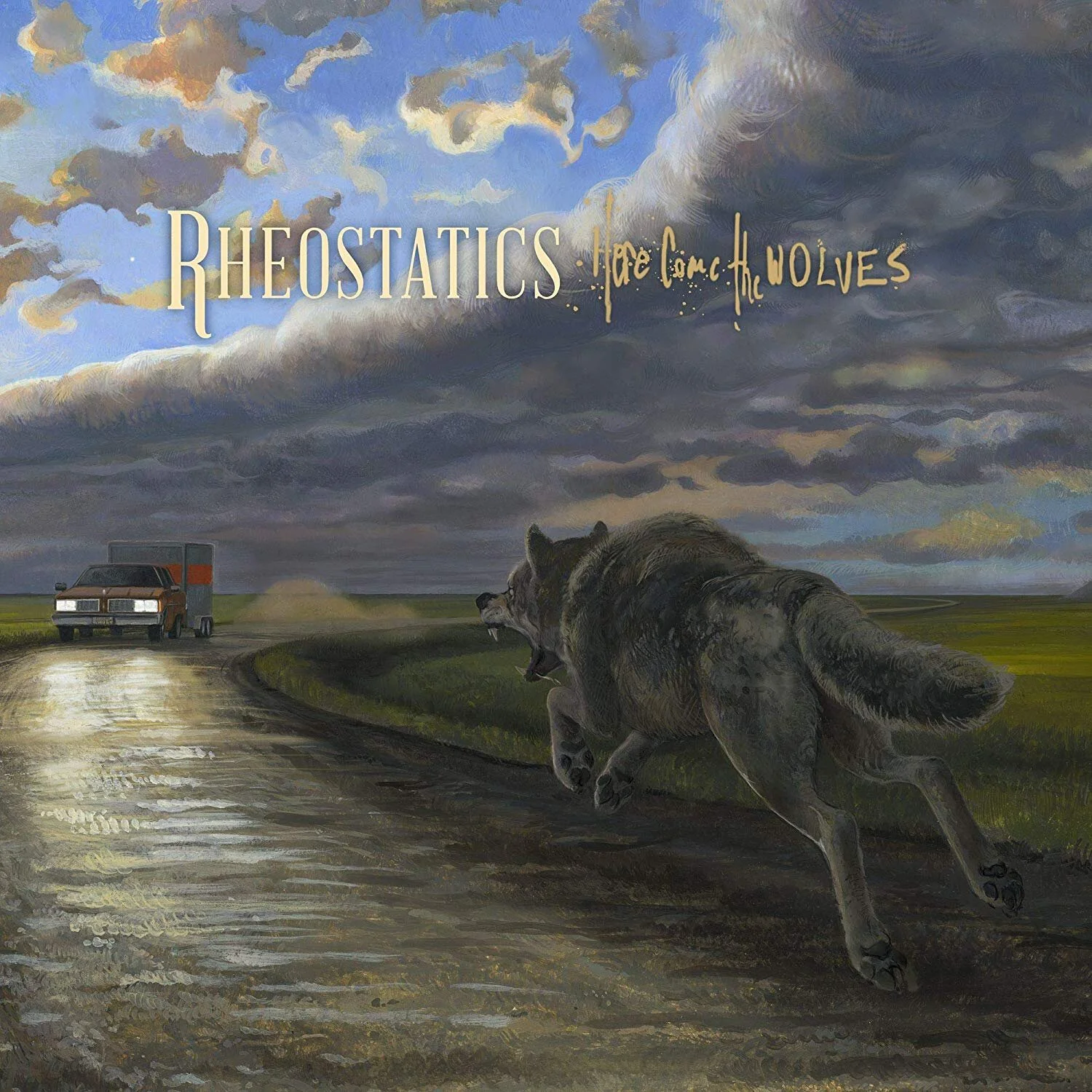Fly Pan Am/Rheostatics/Owen Davies
Fly Pan Am
C’est ça // Constellation
Canadian cult classics Fly Pan Am have returned with C’est ça, a record that will solidify their place in Experimental Rock history. This is the group’s first album since 2004’s N’écoutez Pas, and there has been a definite maturity in the past 15 years. C’est ça is the most structured album Fly Pan Am have recorded. This has all of the sounds and emotions of the previous releases, but everything just hits harder. The dreamy sections are dreamier, the screamy sections are screamier and the noisy sections are, well… a lot noisier. The spaced-out sounds are so dense it sounds like every frequency is being filled at once and then somehow, Fly Pan Am produce more.
Every song flows into each other so perfectly that it took a few listens to realize it didn’t start with one 10-minute epic. The first three tracks are incredible, especially “Bleeding Decay”, probably one of the most musically ambitious songs the band has ever produced. The bass-playing on this track, and certainly the whole record, drives the structure and dynamics, interlocking into the drums in a trance-like state. The passionate screams, immediately followed by a vocoder towards the end, help it burst into a fury, then descend softly into the next song.
“Each Ether” is my favourite track on this album. With pitch bending reminiscent of My Bloody Valentine, and more mind-boggling bass lines, this song is the journey that helps connect the first and last side of the album. The uptempo, and oddly melodic sections coupled with terrific production choices make “Each Ether” push hard, pull back, and then push hard again.
Fly Pan Am is back and I couldn’t be more excited, even if this is the only record we get from the reunion or if it opens the door to the occasional release or tour, I will be very happy. C’est ça affirms that this iconic Canadian act can still produce a fantastic record that will appease yet challenge their audience.
- Declan Paxton
Rheostatics
Here Come the Wolves // Six Shooter
Here Come the Wolves is the latest entry in Rheostatics long discography; the band have been around since 1978, and this record is their first since breaking up in 2006. It’s a polished and precise return to form, bursting with tightly written pop songs that sound absolutely fantastic (it’s produced by Chris Stringer, and notably includes Chris Walla of Death Cab for Cutie mixing some tracks).
These tunes have all the bells and whistles, from the swaggering 70’s horns on “It’s the Super Controller!” to the bouncy baroque-rock guitar heroics on “Albatross”. Each song is constructed in a narrative way; structures don’t repeat a ton, and each songs tends to take you to a few different destinations before eventually leaving you somewhere different than where you started. They know how long to sit in one place before changing up the scenery, and have sequenced and connected their ideas in a manner that never feels like their just showing you all the cool shit they can do (which is always a concern with a release that covers as much territory as this one does). Rheostatics records have always been eclectic, but Here Comes the Wolves feels transportive in a way that is immersive and varied without the whiplash.
- Sean Newton
Owen Davies
Lollipop Pumpkinhead // So Sorry Records
A flickering candle illuminates Owen Davies’ weary face as he places the cassette into the tape player. “Well, here it is,” he says, flashing a crack-toothed smile, then raises his eyebrows twice to indicate the beginning of something special. He can also wiggle his ears, an old kook’s eccentricities. His own voice crackles through the speakers. “Last night I had a dream, that all of the world sat on top of me. All of the bullshit came out of me.” I observe him and jot down a few notes. His eyes close, and his face hangs in placid fixation. Fluttering flutes colour his thin voice. “Owen,” I say, but he’s gone again.
Young Owen Davies, head full of wavy blond hair stands on the busy corner, almost willing the rain to fall in a soft drizzle to dampen the colour of his jean jacket, crooning to a lovely frail-shouldered university student. Pursuing her, volleying her young emotions to and fro with his trickery, her heart haplessly his as they observe their reflections in the window of the antique store.
Owen Davies, three months from then, in the throes of a mid-day slumber; he positions himself with grandeur next to a white grand piano on the ridge line yells her name across the escarpment, swooning with a boozy vertigo*, until he hears the rumbling of a vehicle behind him, and stops. It’s her, and she rushes to embrace him.
Later that year, in the ethereal low-lit bar on a Thursday, Owen Davies washes his hands and returns to the seat where a few buddies have gathered for drinks. His mind is preoccupied, and fixated on the last fragments of conversations, and he checks his phone for her ongoing connection. He takes another shot, and the candlelight blurs, blending, and bending. The image of her distorts, and he searches for a new one in the haze.
“It’s customary!” he’s told me in past conversations, about the trajectory.
Owen Davies follows a new woman down the hallway, his hand on her waist, and the tryst excites and saddens him.
He has a recurring summertime memory, light shining in warm bursts through the rustling leaves of the ash trees in the garden back home. “I had fallen in love with the vision of my working hands, believing that he could reap joy from the earth,” he tells me. I see him looking at his reflection in a crisp seaside pool.
Pleasuring himself to her memory, his blond hair meshing with hers. He sits naked on the bed, strumming a guitar, the cold light streaming in and late summer air blowing in through the sheers, the grassy meadow spanning across a section of Newfoundland coast.
He returns to the city and shrugs at the dishes in the sink of his little apartment. Nothing much to do but head out for a walk and exhume a good memory of her to accompany him.
- JD Ormand
* Janet Maslin, describing Tom Waits’ A Heart of Saturday Night, in a review for the Village Voice.



